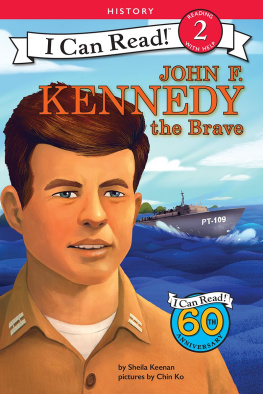Arnold S. Lott - Brave Ship, Brave Men
Here you can read online Arnold S. Lott - Brave Ship, Brave Men full text of the book (entire story) in english for free. Download pdf and epub, get meaning, cover and reviews about this ebook. year: 2013, publisher: Naval Institute Press, genre: Adventure. Description of the work, (preface) as well as reviews are available. Best literature library LitArk.com created for fans of good reading and offers a wide selection of genres:
Romance novel
Science fiction
Adventure
Detective
Science
History
Home and family
Prose
Art
Politics
Computer
Non-fiction
Religion
Business
Children
Humor
Choose a favorite category and find really read worthwhile books. Enjoy immersion in the world of imagination, feel the emotions of the characters or learn something new for yourself, make an fascinating discovery.

- Book:Brave Ship, Brave Men
- Author:
- Publisher:Naval Institute Press
- Genre:
- Year:2013
- Rating:5 / 5
- Favourites:Add to favourites
- Your mark:
- 100
- 1
- 2
- 3
- 4
- 5
Brave Ship, Brave Men: summary, description and annotation
We offer to read an annotation, description, summary or preface (depends on what the author of the book "Brave Ship, Brave Men" wrote himself). If you haven't found the necessary information about the book — write in the comments, we will try to find it.
Brave Ship, Brave Men — read online for free the complete book (whole text) full work
Below is the text of the book, divided by pages. System saving the place of the last page read, allows you to conveniently read the book "Brave Ship, Brave Men" online for free, without having to search again every time where you left off. Put a bookmark, and you can go to the page where you finished reading at any time.
Font size:
Interval:
Bookmark:
This book has been brought to publication with the generous assistance of Marguerite and Gerry Lenfest.

Brave Ship Brave Men
BRAVE SHIP
BRAVE MEN
LT. COMDR. ARNOLD S. LOTT
U.S. NAVY (Ret.)
NAVAL INSTITUTE PRESS
Annapolis, Maryland
Originally published in 1964 by The Bobbs-Merrill Company, Inc.
1964
by the United States Naval Institute
Annapolis, Maryland
All rights reserved. No part of this book may be reproduced without written permission from the publisher.
First Bluejacket Books printing, 1994
Library of Congress Cataloging-in-Publication Data
Lott, Arnold S.
Brave ship, brave men.
1. World War, 19391945Naval operations, American. 2. Aaron Ward (Ship) 3. World War, 19391945Campaigns
JapanOkinawa Island. I. Title.
D774.A2L6 1986 940.5473 86-2372
ISBN 978-1-61251-285-3

Dedication
TO THE MEN ON THE PICKET STATIONS,
WHOSE BATTLES WERE TOO SELDOM RECORDED,
WHOSE DEEDS WERE NOT OFTEN ENOUGH REWARDED,
BUT WHOSE ACTIONS WERE ALWAYS VALOROUS.

The Battle for Okinawa was the last major campaign of World War II. It was a bitter, hard fought contest in which for the first time during that war our landing operations met no surface opposition. The last serious surface effort of the Japanese Navy occurred on 7 April 1945, when the giant battleship Yamoto accompanied by the cruiser Yahagi and eight destroyers was intercepted and destroyed by Task Force 58 as they headed for Okinawa. Only four destroyers survived. Not once during the four-month-long struggle for Okinawa was there an engagement between the remnant Japanese Navy and the powerful U. S. Fifth Fleet, yet the losses suffered by the Navy at Okinawa were greater than in any major fleet action during the war30 ships sunk, more than 300 damaged, and more than 9,000 men killed, missing, or wounded.
This destruction was wrought primarily by Japanese air attack, and in particular by suicide attacks. The greater part of it was inflicted on destroyers and smaller craft in individual engagements on the radar picket stations surrounding Okinawa. This was not a battle by vast opposing forces, but an unending series of small fights. Not one of them was important enough to become an epic in naval history, but each of them was highly important to the men who were involved. The Navys defeat of this desperate, vicious attack was due in large part to the training, tradition, discipline, and devotion which made superb fighting teams out of what were, after all, rather ordinary ships and men, exactly like the ship and men whose story follows in these pages.
This ship was only one of hundreds of ships which took part in that long and determined struggle. If a book could be written about every deserving ship on the picket lines at Okinawa the shelves of naval history would indeed become crowded, for every ship there met the trial of battle with courage and bravery.
But Okinawa was twenty years ago. The logs have become dusty and our memories grow dim. This book may have to serve in place of many. The ship named here is the USS Aaron Ward, but the story might well be about any ship and every sailor who fought on the picket line. The title applies to them all.

Treasure Island, California, 1964

This book had its beginning in 1956 when I was gathering material for a book on naval minewarfare operations in World War II and first talked with the minecraft boss for the invasion of Okinawa, Vice Admiral Alexander Sharp, U. S. Navy, retired. Write something about the Aaron Ward, said the Admiral. She was a great ship. Aaron Ward was only one of hundreds of ships under his command in that operation, but he had remembered her. He had boarded her the morning after the battle here described, to be impressed both by the destruction she had survived, and the superb morale of her crew. But in a book about hundreds of ships, there could be only one page for Aaron Ward. Her story had to wait.
Eventually, I located the Aaron Wards skipper, and immediately began to understand why the ship and her crew so impressed the Admiral. Fifteen years after the battle the crew had spread to every corner of the United States and throughout the U. S. Navy, yet Captain William H. Sanders, Jr., U. S. Navy, knew where they all were. And the men, mostly civilians by then, still kept in touch with their skipper. The ship was gone, but the crew was an entity. They still called themselves Aaron Ward sailors.
During the several years since then, I have lived with the USS Aaron Ward and her fighting crew. I have read the ships logs, her war dairy, her action report, and all the Captains own papers. I have had hundreds of letters from the crew, and read some of the letters they sent home from the battle zone to their families. I have traveled thousands of miles to talk with as many of them, and their wives, mothers, and sisters, as possible. And I discovered that the fighting spirit and morale Bill Sanders instilled in his crew in 1944 is still there. Twenty years after the one hour battle which was the ships sole reason for being, the surviving crew members still think they had the best ship, the best officers, and the best crew, in the United States Navy. They are all men with whom I do not wish to argue.
Reference material for this book was provided by the Office of Naval History; the Bureau of Naval Personnel; the Naval Bureau of Ships; and the National Archives, in Washington, D. C. The watches heading each chapter are quoted from the official log of the USS Aaron Ward. Much valuable information on picket line operations off Okinawa came from those men who served in other ships during that campaign, but who still remembered the Aaron Ward. For all such help, my thanks.
I did not serve in this ship, nor did I ever see her. The book was really written by the officers and men of the USS Aaron Ward; my name appears here only because I have recorded what they did and said. And because, thirty years ago, I sailed in the first USS Aaron Ward.
ARNOLD S. LOTT
Annapolis, Maryland, 1964

(This book is written in watches to agree with the log of the USS Aaron Ward for 3 May 1945. The additional remarks section, a customary part of all naval logs, describes events subsequent to that day.)
ADMIRAL AARON WARD, HISTORY OF DESTROYER NO. 132 AND DESTROYER NO. 483.
THE CREW.
THE OFFICERS.
COMMISSIONING AND SHAKEDOWN, TRANSIT TO ULITHI.
INVASION OF OKINAWA.
BATTLE.
RESCUE AND TOW.
SALVAGE AND REPAIR. REPORTS TO NEXT OF KIN. STATESIDE! VICTORY AND DECOMMISSIONING. A LAST TRIBUTE.
Conversations quoted in the text are based on interviews and letters. Commands and orders not attributed to an individual by name but which have been used in various instances have been set in capital letters. Italicized text presents thoughts expressed by or common to more than one person.
Next pageFont size:
Interval:
Bookmark:
Similar books «Brave Ship, Brave Men»
Look at similar books to Brave Ship, Brave Men. We have selected literature similar in name and meaning in the hope of providing readers with more options to find new, interesting, not yet read works.
Discussion, reviews of the book Brave Ship, Brave Men and just readers' own opinions. Leave your comments, write what you think about the work, its meaning or the main characters. Specify what exactly you liked and what you didn't like, and why you think so.








